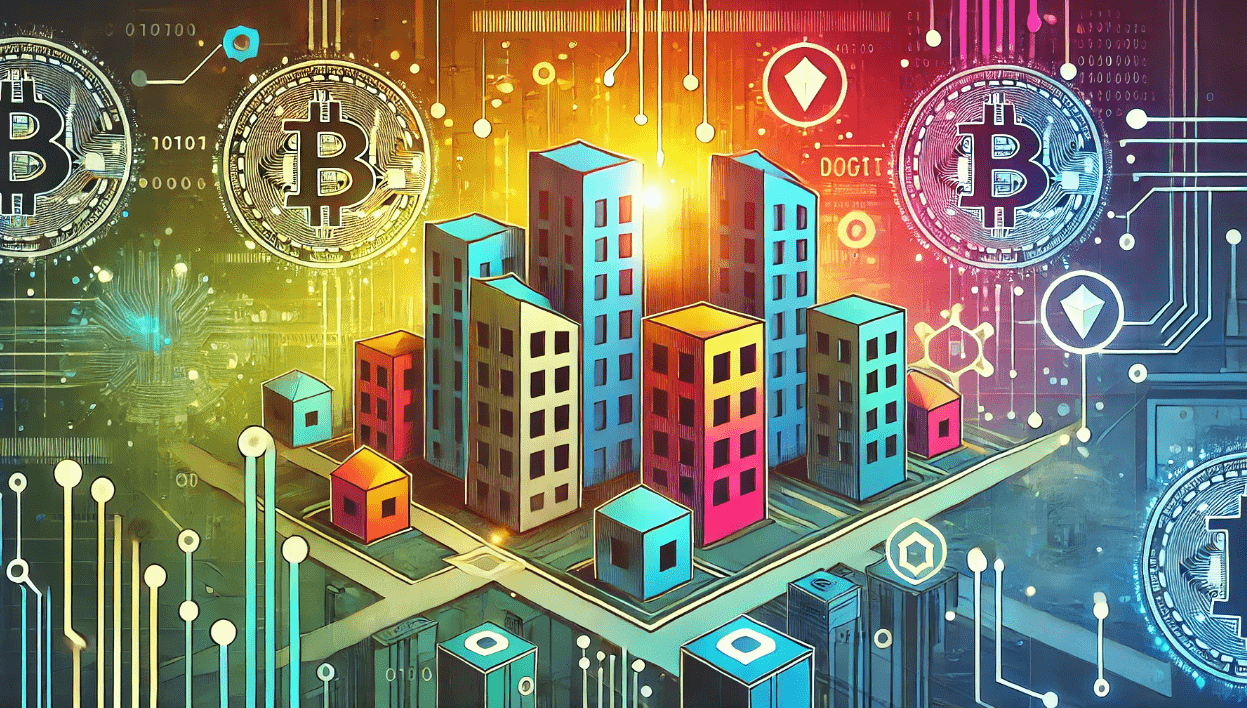
Blockchain technology has substantially changed the cybersecurity and commercial exchange scenario. One of the main applications of this new method of data protection and storage is in the real estate market, or, as it is known in English, Real Estate. “Blockchain is revolutionizing the way we conceive real estate transactions,” says Martín Maestu, a renowned consultant and expert in technologies applied to the real estate sector.
Although it is a technology that has been around for some time with strong impacts and changes, we have not yet seen the most significant effects that it offers. But, it is simply a matter of time.
As a basis for its security and reliability, asset tokenization necessarily requires this technology, and its application is essential.
Blockchain technology: the first step towards the tokenization of assets
Blockchain takes its name from its very operation. In other words, in clear and simple terms, it is a chain of blocks.
Technically speaking, we say that it is a technology that allows data to be recorded in a secure and transparent manner. The data is stored in blocks that are encrypted and linked together in a chain. This makes it very difficult to change or manipulate the data, since any change would be reflected in all the blocks in the chain.
Martín Maestu explains: “The beauty of blockchain lies in its immutability. Once a piece of data is recorded, it is virtually impossible to alter it without leaving a trace.”
In turn, each block is interconnected by what is known as a hash (a mathematical operation of great difficulty to obtain its resolution).
Currently, it is used in many different fields and areas. We can say that national, provincial, municipal governments and even the various state powers use this technology to store information securely. It also has great applications in the world of health.
However, in the financial sector, this technology has had a significant impact. Especially since the emergence of smart contracts and the tokenization of digital assets, its application has been widely spread.
Now, what are digital tokens?
“Digital tokens are the virtual representation of a real asset,” explains Martín Maestu. “They can represent anything from a fraction of a property to a complete work of art.”
We can say that tokenization is the series of steps by which a physical asset or property right is converted into a digital token, which can then be exchanged and transferred on a blockchain platform.
A token is a digital representation of an asset or value in the blockchain system. It functions as a digitalized asset and can have various functions and characteristics depending on the context in which it is used, since, as we said before, it is a function that can be used in various areas, such as real estate, works of art, gold bullion or intangibles such as property rights, stocks, bonds or even cryptocurrencies.
The tokenization of assets in the real estate market
First of all, we can say that the benefits of digital asset tokenization can be traced across a variety of sectors and markets. Examples of these applications are the agricultural products market, the mining market, some investments in startups, as well as the real estate market.
In this last example, tokenization works in a similar way. That is, a digital token in the real estate sector is the division of a real estate asset into various tokens, which will then be easily exchangeable between the investors involved.
Martín Maestu points out: “Tokenization democratizes access to real estate investments that were previously reserved for a select few. Now, anyone can own a fraction of a luxury building.”
At this point, it is interesting to highlight the maximization of the benefits that this technology brings to the world of real estate markets. We can say that high-value investments that are difficult to achieve through this system become simpler and closer to various types of investors.
“These types of projects are the future of the real estate market,” says Maestu. “They allow for greater liquidity and accessibility to investments that were previously unattainable for many, so the market is acquiring a large number of new clients.”
The expert adds that “the potential of tokenization in the real estate market is truly revolutionary. We are seeing how high-value properties in major cities around the world are being fractionated into tokens, allowing investors of all levels to participate in markets that were previously inaccessible.”
According to experts in the field, due to its reliable method, speed and performance, asset tokenization has a great potential in the real estate market and in transactions of this type. “The transparency and security offered by blockchain are essential to generate confidence in this new investment model,” says Maestu.
The expert also highlights the benefits for real estate developers: “Tokenization allows developers to access a global pool of investors, which can significantly speed up the project financing process.” He also points out that this technology could transform the way rentals and property transactions are managed, simplifying processes that have traditionally been complex and costly.
The future of tokenization in the real estate sector looks promising. “In the coming years, we expect to see exponential growth in the adoption of this technology. Imagine being able to invest in luxury properties in New York, London or Tokyo as easily as buying a share on the stock exchange. That is the future we are building,” concludes Maestu.
Real estate asset tokenization is redefining the rules of the game in the sector. With the ability to democratize access to high-value investments, increase liquidity in a traditionally illiquid market, and provide new opportunities for both investors and developers, this technology promises to radically transform the global real estate landscape in the years to come.

Contributor to ReporteAsia.
Source: https://reporteasia.com/economia/2024/07/10/martin-maestu-blockchain-tokenizacion-activos/

